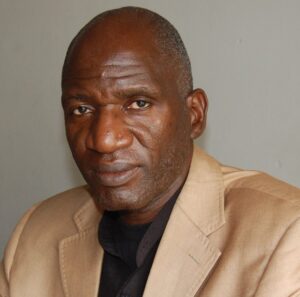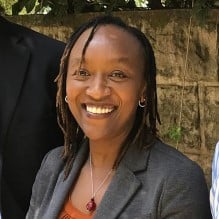Christian Scholarship: A Calling (Part 1)
By Dr. Luka Dinshak
Knowing and Responding to the Call of God
In almost all of Paul’s epistles, he identified and introduced himself by reference to God’s call on his life. Romans 1:1 is especially instructive: “Paul, a servant of Jesus Christ, called to be an apostle separated unto the gospel of God.” From his first encounter with Christ on the way to Damascus, he had a clear direction from the Lord concerning his trajectory in life henceforth. He had been set apart to bear witness to Christ among the Gentiles, to open their eyes and turn them from darkness to light and from the power of Satan unto God (Acts 26:12-18). Paul esteemed this calling all other engagements. Since this purpose was very clear to him, he knew when he was nearing the completion of his race (2 Timothy 4:6) and was then looking forward to the crown of glory that the Master would give him. He was quick to add that it would not be only for him but all who had followed faithfully.
When Jesus Christ reconciles people to God, it is so that they can in turn be instruments of reconciling others to Him. The Lord has assigned this responsibility to all of us, as part of our calling to make disciples. Certainly, this means more than leaving home and going on mission (though some may be called to do that). All our life and engagement should be about bearing witness for Jesus in all we are doing, especially in our vocation where we have great opportunity for impact.
Few people have as much leverage to influence others as scholars do. Knowledge has a great impaact on others, and scholars, more than anyone else, are the creators, custodians, repositories and dispensers of knowledge. All that God has created is a means by which He intended to make Himself known (Romans 1:20). The more we know about God’s creation, the more able we are to perceive and know God deeply. No one is so endowed to ponder every aspect of God’s creation and how to encounter Him as much as academics. Research, teaching, serving our communities with our knowledge, and publishing are all ways to discover God, whatever field we are in. This is the life to which we have been called.
When God created human beings in Genesis 1:27-30, he commanded them to “Be fruitful and multiply and replenish the earth and subdue it and have dominion over the fish of the sea, and over the fowl of the air and over every living thing that moves upon the earth.” As for what they would have for their sustenance, it was a given (Genesis 1:29). God promises to provide for our needs; He did so even before man was created. Sadly, people have abandoned God’s vision of our purpose for living, despised God’s provision and become so preoccupied with seeking their physical sustenance that they spend their lives working to live–as captured in the common question “What do you do for a living?”–rather than living for God.
God wishes to bring us back to His original reason for creating and calling us in Christ. We should be the first to respond to this reawakening among His people because we are positioned to reach influencers with it, until the whole earth is filled with the knowledge of God as the waters cover the sea (Habakkuk 1:14).
Implications of the call to Christian scholarship
When Paul understood his call by the Lord, he knew it had implications, which also apply to us.
- He was not disobedient to the heavenly vision (Acts 26:19). He immediately set out to respond to the Lord as he had been directed. We should accept the responsibility God has placed on us as academics to bear witness for Him by our vocation. This is the reason for which we were created and therefore for which we should live.
- We should count it a privilege to be called by God in this way, just as Paul rejoiced that Christ Jesus counted him worthy of performing ministry (I Timothy 1:2). It should be a thing of joy and praise for us, and something that we go about earnestly.
- Paul identified and raised up people around him who would labour with him in carrying out this ministry. We need to identify and draw others into what God has called us to, especially students and younger colleagues,so that they can labour with us. They will also be the ones who succeed us when we are no longer there.
- Paul was committed to doing ministry that would please the Lord who had called him (2 Timothy 2:4). We have enough on our hands as academics. If we are faithful in attending to this ministry, we will see God’s faithfulness releasing all we need to prosper us in every way.
- Paul did not consider that he would have been better off somewhere else. In fact, he counted all that he was engaged in previously as a waste. He considered the excellency of his call to be more profitable than anything else (Philippians 3:8). We should not fall into the folly of thinking in pecuniary terms and believing that something other than our present engagement would have been better. Nothing can be compared to our service in and for the Lord as academics.
- Paul did not count anything too dear for him to give up, not even his life, so that he might attend to this ministry and finish it well (Acts 20:24). We should be willing to let go of anything that could keep us from attaining all that God intends for us to accomplish, regardless of the cost, because we are the Lord’s.
- Our reward for this labour should not come from human beings (as they are not the ones who called us) but from the Lord. Paul said that we have hope only in this life, we are of all people most to be pitied (I Corinthians 15:19). He was even willing not to receive the sustenance that he could have received from those to whom he ministered; instead he served freely at his own expense (I Corinthians 9:1-15).
- Paul was willing to submit himself to spiritual authority to confirm that he was carrying out his ministry correctly (Galatians 2:2). As we go about our ministry, we should have people to whom we are accountable, so that we do not go off track.
- Paul disciplined himself to watch his own personal walk with the Lord as well as his ministry. We need to keep communion with the Lord, being temperate in all things so that our testimony will remain true to Him (I Corinthians 9:26-27).
- Paul was mindful of only one thing: that Christ might be magnified in his body, whether by life or by death. because for him to live was Christ and to die was gain (Philippians 1:20). Nothing should matter to us other than that Christ should be honoured, whatever that could mean for us. Whether we may appear to gain or lose should be of no concern as long as the purpose of God is accomplished in us.
Conclusion
As we can see, Paul’s method of ministry has many implications for our vocation as Christian scholars. The bottom line is that we should be sold out to the One who has called us. We have ceased to be our own and must not do anything that would limit our service to God, just as a soldier serves his commander. If we serve in this way, we can expect God to use us to accomplish great things for His kingdom. Moreover, in this life we will never be ashamed, and we will receive a full eternal reward from our Maker and Master because we have lived faithfully in the singular pursuit of the purpose for which he has placed us on earth.

A Society Resource You Need to Explore!
When Global Scholars (the nonprofit organization I serve as CEO) participated in establishing the Society of Christian Scholars five years ago, we knew we wanted to provide editing support for Christians who are seeking to publish academic writing. We were pleased that when the Society was launched, we could offer an Editorial Services Department with more than a dozen volunteers serving as technical editors and content reviewers.
Over the past few months, for the first time, I myself have been a customer of Editorial Services. I’ve been writing a book on the increasingly popular topic of neurotheology, examining the implications of these new ideas for how we function as Christians. (The book will soon be available from Wipf and Stock.)
I felt very blessed to have access to support from Bruce Barron, our director of editorial services, who is also a global issues consultant for Christianity Today and editor of the World Evangelical Alliance’s theology journal. Not only did he provide high-quality copyediting, but he also engaged in friendly dialogue regarding the content, offering insightful observations and suggestions, which were especially helpful since some of my arguments may be controversial.
I would encourage other Society members in need of editorial services to take advantage of this valuable benefit of Society membership!
Stan Wallace


Society Opportunities
2024 Christian Scholars Foundation Legacy Grant Open Until 20 April 2024
Note: For this grant, scholars of any nationality who live and work in the US or Canada are eligible.
Global Scholars, one of the principal partners of the Society of Christian Scholars, will again award one Christian Scholars Foundation Legacy Grant in 2024. The grant will be awarded to a junior faculty member in the U.S. or Canada. The purpose of this grant is to advance Christian scholarship, encourage Christian scholars who are seeking to integrate Christian faith with their academic endeavors, and nurture Christian faculty as they strive for wider recognition in and beyond the academy.
Applicants are required to be members of the Society of Christian Scholars and the Emerging Scholars Network. The 2024 Christian Scholars Foundation Legacy Grant will be $11,000. More details and the grant application are available at the Society of Christian Scholars member site.
Questions concerning the grant may be sent to Dr. Hannah Eagleson, Christian Scholars Foundation Legacy Grant Director, here.
The application period closes on 20 April 2024.
NEW! Library Reading Corner
The aim of the Library Reading Corner is to familiarize Addenda readers with the resources of the Society’s Library in support of its services and mission to equip for redemptive influence in five growth areas: (1) integration of faith and scholarship; (2) spiritual formation; (3) socio-cultural engagement; (4) vocational excellence in research, teaching, and administration; and (5) relational and leader development. Selected resources will take the form of an annotated bibliography as they may relate to the Society’s services such as upcoming or past webinars, activities of online groups such as the Library Reading Group, Continuing the Conversation (related to webinars), or any of the other online groups of the Society.
This month’s feature includes three library resources under the library category of “Pursuing Vocational Excellence.” These three resources provide further reading for the Society’s March 2024 webinar, Political Constellations: How Jesus’ Example Can Help Us Create Productive Conversations in a Polarized World, presented by Dr. Ian Sieborger.
Annotated Bibliography
- ‘Information Society and Public ICT Policies in the Caribbean: A Review of Advances and Challenges, Policy Instruments and Experiences’ by Carlos Miranda Levy
Brief Description: This document is a report of the United Nations Economic Commission for Latin America and the Caribbean (ECLAC). It presents a collection of papers, presentations and recommendations made at a regional ICT Policy Makers Seminar for Caribbean leaders.
- ‘“Mastering Another Language”: A Case Study in Interdisciplinary Teaching and Learning on Food Security Across Two Countries and Two Universities’ by Martine J. Barons and Sue Kleve
Brief Description: This paper focuses on interdisciplinary research, pedagogy and assessment. These strategies may be applied to the areas of Christian higher education, campus ministry and research as worship.
- ‘Media and Information Literacy in Critical Times: Re-imaging Learning and Information Environments’ by Jose Manuel Perez Tornero, Guillermo Orozco and Esther Hamburger, eds.
Brief Description: One of the objectives of this UNESCO yearbook is to strengthen and deepen the knowledge concerning Media and Information Literacy and Intercultural Dialogue (MILID) on global, regional and national levels including in the frame of human rights (such as religious rights), dialogue, democracy and peace.
If you would like to know more about the Society’s library, watch the webinar ‘Nurturing Redemptive Influence through Resources: The Society Library as a Learning Resource’ and/or contact the Society’s librarian, Dr Marlene Hines, at mhines@societyofchristianscholars.org.
Call for Book Reviewers
If you would like to write a 1,000-word review on the following book, please contact Dr Ron Lindo at rlindo@SocietyofChristianScholars.org for further details. Reviews will be highlighted and published in a special section of our Society member site.
- African Hermeneutics by Elizabeth Mburu
Langham Press has provided a unique discount code to Society members for Mburu’s book African Hermeneutics. Here are the steps for receiving this discount:
- Go to the following link: https://langhamliterature.org/books/african-hermeneutics
- Click on buy now.
- Put in your email and shipping information; hit next (shipping is free)
- Before putting in your payment information, click on the Apply Discount Code.
- Enter the following code: SCSAH20
- Submit your payment.
- You should receive an ebook unlock code within 3 days of purchase. This is in addition to getting your physical copy when it arrives.
Upcoming Webinars
Be sure to check the Webinars Page for third-party webinars that are often added on short notice and for updated presenters and topics that may be helpful in equipping you to bring the gospel to bear in your university context.


Reading the Bible in Different Contexts by Elizabeth Mburu – Thursday, 18 April 2024 at 1400 UTC
For Christian academics, Scripture is the lens through which we understand the university and its reason for being, not only to discover and communicate knowledge but also to pass on wisdom for human flourishing. How we read the Bible matters because it is our authoritative guide for faith and practice. The key question is – do we all read it through the same lens?
On Thursday, 18 April 2024 at 1400 UTC, Prof. Elizabeth Mburu, Langham Literature Regional Coordinator for Africa and associate professor of New Testament and Greek at Africa International University (formerly Nairobi Evangelical Graduate School of Theology) in Kenya, will address this question. Clearly, she contends, the answer is that we do not. We are all situated within specific contexts, and thus our interpretations of the same text will have different nuances. While we should all consider the worlds behind and of the text, the world in front of the text also plays a role in determining the questions we bring to it.
During this webinar, Prof. Mburu will suggest how we can navigate these different worlds, maintaining that, as with a jigsaw puzzle, each piece fits into the whole to provide a complete picture. To demonstrate, she will present one of these pieces – the African reading of biblical texts. If you would like to explore the topic before the webinar, consider reading the introduction to her book, African Hermeneutics.
Given the importance that Scripture holds in our normative understanding and our ways of functioning in the world as Christian academics, we strongly encourage you to join this conversation. Sign up for the webinar today!


Big-Picture Leadership by Justyn Terry – Thursday, 16 May 2024 at 1400 UTC
At whatever stage of leadership we may be, it helps to stand back and get a sense of the big picture in terms of the overall lifecycle of leadership. Leaders must start by establishing trust amongst those they are leading; they will want to be cultivating leaders, and they will also want to discern and, from time to time, refresh the vision they believe God is giving them for the future. They will also need to implement plans in a way that manages people, time and money well, and they will need to know when the time has come to move on.
On Thursday, 16 May 2024 at 1400 UTC, Revd Dr Justyn Terry, Vice-Principal and Academic Dean of Wycliffe College at the University of Oxford, will work through each of those five phases of leadership: (1) establishing trust, (2) cultivating leaders, (3) discerning vision, (4) implementing plans, and (5) transitioning out. You can preview these topics by reading the introduction to his book, The Five Phases of Leadership.
At whatever stage of leadership you may be, this webinar will help you step back and get the big picture. Be sure to sign up today!
Disclaimer: The views and opinions expressed in the Addenda are those of the authors and do not necessarily reflect the views or positions of the Society of Christian Scholars.

